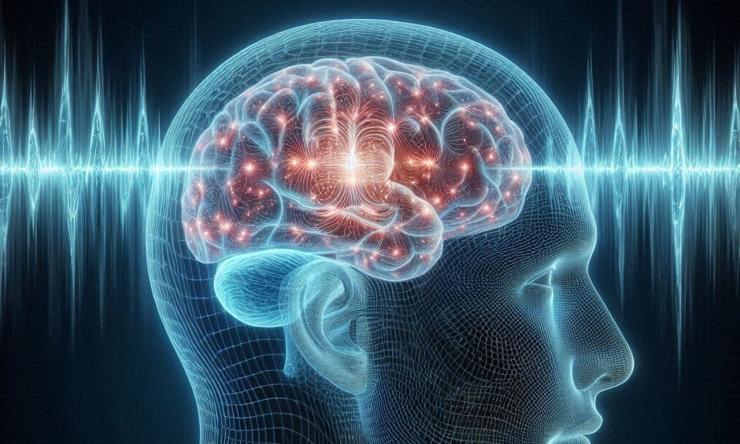Baylor receives grant to study DBS of treatment-resistant bipolar depression
Baylor College of Medicine received nearly $10 million in funding from the NIH BRAIN Initiative to study effective treatments for the depressive phase of bipolar disorder. In the span of five years, the study will test whether deep brain stimulation (DBS) is effective and safe in patients with bipolar depression who have not responded to available therapies. It also seeks to identify biomarkers – based on brain recordings – of changes in mood states (e.g., depression vs. mania).
DBS is a well-established neurosurgical procedure that treats mostly movement disorders such as Parkinson’s disease and essential tremor. It involves a neurosurgeon implanting electrodes in the brain and connecting them to an implantable pulse generator (IPG) device placed under the skin of the chest. This hardware is analogous to a cardiac pacemaker, hence the colloquial term “brain pacemaker” is often applied to DBS. Starting weeks after the surgery, a psychiatrist manages brain stimulation levels using a programming tablet that communicates wirelessly with the IPG. In this fashion, both therapy and possible side effects of DBS can be adjusted.
A collaborative team of investigators at Baylor and the University of Washington previously implanted DBS for patients with treatment-resistant depression and OCD, including Dr. Wayne Goodman, corresponding principal investigator and professor and D. C. and Irene Ellwood Chair in Psychiatry in the Menninger Department of Psychiatry and Behavioral Sciences at Baylor; Dr. Sameer Sheth, professor and vice chair of research in the Department of Neurosurgery at Baylor; Dr. Nicole Provenza, assistant professor in the Department of Neurosurgery at Baylor; and Dr. Jeffrey Herron, assistant professor of neurological surgery at the University of Washington.
“DBS has greatly improved quality of life in individuals with Parkinson’s disease and essential tremor. Previous work has suggested that we can use this technology to engage and heal dysfunctional brain networks in individuals with depression and bipolar disorder as well. Success in this project will significantly advance our goal of using this therapy to help the millions of individuals worldwide who suffer from these disorders,” Sheth said.
Through the BRAIN Initiative funding, the research team will implement DBS in 10 patients with treatment-resistant bipolar depression. Bipolar disorder can be debilitating and often is associated with risk for suicide. Treatment-resistant bipolar depression has few available treatment options and may be severe and prolonged.
They will target the ventral capsule/ventral striatum, which is a deep structure in the brain that is part of the reward circuitry of the brain. Emerging signs of mania, such as decreased need for sleep, increased activity, rapid speech and abnormally elevated mood will be monitored with a variety of mobile monitoring methods, including wearables, smart phone readouts and audio diaries in addition to recording brain activity with the DBS device. Patients’ family members and loved ones also will report to the researchers if they see any signs needed to adjust stimulation.
“We hope to see encouraging evidence that we can treat the depression without inducing mania, and that may lead to future studies of using this approach in patients with treatment-resistant bipolar depression,” Goodman said. “We want to help these patients come out of depression and enter a sustained period of stable mood.”










